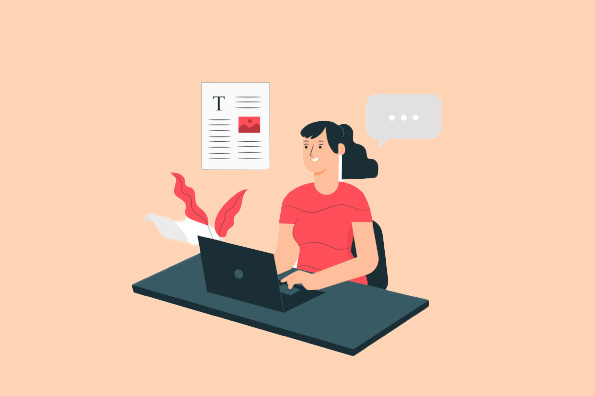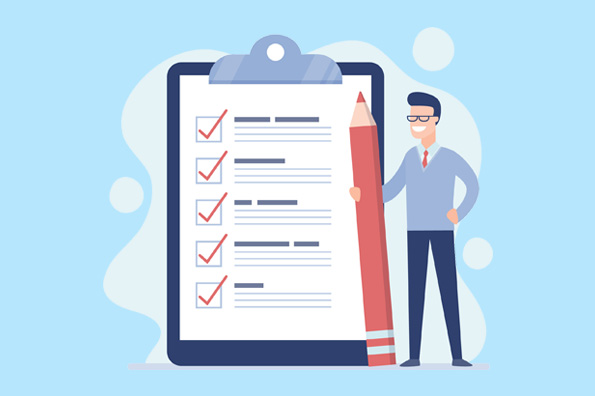Modified Gross Lease Explained: A Comprehensive Guide for Business Owners
As business owners, we're always seeking opportunities to optimize our costs while securing the best deals for our companies. Real estate leasing is...
6 min read
LegalGPS : Jul. 26, 2024
Ever wondered how some businesses manage to use high-end equipment without tying up their capital? The answer lies in Equipment Leasing – an affordable and flexible way to get your hands on the assets you need to keep your business running smoothly. But, there's more to equipment leasing than meets the eye. It's not merely about using someone else's equipment; it involves legal obligations that bind you and the leasing company. This is where an equipment lease contract comes in!


Secure Transactions with an Equipment Lease!
Legal GPS templates are drafted by top startup attorneys and are fully customizable🛠️.
Trusted by 1000+ businesses to close secure deals.
So, you want to provide your business with essential equipment without breaking the bank? An equipment lease might be the perfect solution! But what is it, exactly? We'll break it down for you in this section, giving you actionable steps to help you better understand and utilize an equipment lease for your growing business.
An equipment lease is a legal agreement that lets your business (the "Lessee") rent and use equipment owned by someone else (the "Lessor") for a specified time and cost. But it's more than just renting equipment; it's a binding contract that outlines the terms your business must adhere to while in possession of that equipment. This includes payment terms, maintenance responsibilities, and potential options for purchasing the equipment outright.
Throughout different industries, companies often find themselves needing expensive equipment that may be out of their immediate financial reach. Equipment leases provide a solution to this problem. Whether it's construction machinery, office technology, or medical equipment, leases allow businesses to use these vital assets while spreading the cost over a longer period, improving cash flow and freeing up cash for other business activities.
Leasing is not just beneficial for cash-strapped businesses; it also allows companies to stay up-to-date with the most recent technology as assets can be upgraded at the end of each lease period. But while the benefits are numerous, it's essential to understand that an equipment lease is a binding legal relationship with significant obligations for each party.
Imagine, for example, that you're leasing a piece of equipment from a manufacturer. If the manufacturer doesn't provide maintenance or repairs, you may be held responsible for paying for them yourself. Similarly, if you fail to make your lease payments on time, the other party could repossess their property and take legal action against you.
Moreover, if you don't meet the terms of your lease contract, the other party could sue you for breach of contract. This means that if your business fails and goes out of business, their assets are not yours to keep—they still belong to the manufacturer.
Entering into an equipment lease can seem daunting, particularly given the legal implications it carries. Significant details like the duration of the lease, the amount and intervals of payments, maintenance responsibilities, and terms for lease termination are agreed upon in an equipment lease contract.
An equipment lease contract involves two main players:
The 'Lessor' – the leasing company or individual who owns the equipment, and
The 'Lessee' – the business or individual renting the equipment.
Key terms often encountered in equipment leases include:
'Lease Term': the duration of the lease.
'Residual Value': the anticipated value of equipment at the end of the lease.
'Fair Market Value Lease': An agreement where the lessee returns the equipment at the end of the lease term.
'Capital Lease': A lease that behaves much like a purchase arrangement for accounting purposes.
‘Maintenance’ detailing who is responsible for maintaining and repairing the equipment.
'Equipment Insurance': The protection of the lessee against loss or damage to the equipment.
'Lessee’s Credit Rating': Factors that impact a business or individual’s ability to obtain financing.
‘Lessee’s Credit Rating': Factors that impact a business or individual’s ability to obtain financing.
'Inventory': A list of assets that can be converted into cash within one year.
‘Direct Costs and Overhead’: Expenses directly related to the production or operation of equipment.


Legal GPS Pro
Protect your business with our complete legal subscription service, designed by top startup attorneys.
Now that we've covered the basics, let's delve into how you write an equipment lease contract.
We've simplified the process of writing an equipment lease into digestible, manageable steps, so it's less intimidating and more actionable! By the time you've finished reading this section, you'll have a clear understanding of what your own equipment lease should contain.
Your contract must clearly name the parties in the agreement. Be sure to include their legal names, addresses, and types of entities if not individuals. Also, assign labels to each party. The party renting the equipment is the "Lessee" and the party who owns the equipment is the "Lessor."
Example:
"The contract is between [Lessor's Full Name + Address], henceforth referred to as 'Lessor,' and [Lessee's Full Name + Address], henceforth referred to as 'Lessee.'"
In order to eliminate any confusion, provide a thorough description of the leased equipment. The make, model, condition, and any identifying features should be included. If serial numbers are applicable, include them here.
Example:
"The equipment, henceforth referred to as 'Equipment,' includes one (1) [Equipment Brand + Model Number], in [describe condition, for example, 'new' or 'used'] condition."
The terms of the lease should clearly specify the duration of the lease, the amount of the lease payments, and when these payments are due. It also entails describing any potential security deposit and conditions for its return.
Example:
"The lease will commence on [Start Date] and will expire on [End Date], unless otherwise terminated in accordance with the provisions of this Agreement. The Lessee agrees to pay $[Amount] on [Due Date of Every Month/Year]."
Clearly outline which party is responsible for the equipment's maintenance and repairs. If the Lessee is responsible for some or all repairs, include details on the expected condition of the equipment at the end of the lease.
Example:
"The Lessee will be responsible for routine maintenance and repairs to maintain the Equipment in good working order."
Get Your Equipment Lease Template
with a Legal GPS Subscription
Clearly describe under what conditions each party can terminate the contract. It normally includes provisions for breach of contract and might feature specific conditions related to your lease.
Example:
"Should the Lessee fail to make lease payments by the Due Date for a number of [choose a permissible number of times] occurrences, the Lessor has the right to terminate the contract."
Remember, writing an agreement should be seen as a guideline. Every lease might have unique aspects that need to be addressed, and it's always best to consult with legal advice to ensure you're covered. Now, you're well-armed to face the drafting of an equipment lease!
Writing an equipment lease doesn't need to be scary with the right guidance, but it is critical to understand the specific steps.
While an equipment lease contract may seem overwhelming to write from scratch, using a pre-prepared contract template can simplify things greatly.
Instead of starting from zero, contract templates give you a head start with industry-standard provisions already included, which you can then tailor to your specific needs. This means you spend less time on drafting, and more time on your business.
Here are some of the key benefits of using an equipment lease contract template:
Easier to understand and navigate than a blank document.
Provides structure, which helps you avoid overlooked provisions and mistakes.
More time spent on your business, not drafting contracts.
Saves you money. A contract template is often less expensive than a custom-written lease agreement, and can be used over and over again for multiple transactions.

Secure Transactions with an Equipment Lease!
Legal GPS templates are drafted by top startup attorneys and are fully customizable🛠️.
Trusted by 1000+ businesses to close secure deals.
Now, you could hire an attorney to write you a bespoke lease agreement, but this can be costly and time-consuming. A more manageable option is to use a well-made contract template for your equipment lease, like ours at Legal GPS.
Our equipment lease contract template considers all the elements we've discussed in this guide and more. It's adaptable, comprehensive, and simple to use, and most importantly, it's designed to protect both lessor and lessee in their equipment leasing journey.
To conclude, equipment leasing is a cost-effective, flexible way for businesses to access needed equipment. However, to ensure a smooth leasing process, a well-drafted equipment lease is essential. And that’s where we come in.
Our template empowers you with a functional and legally sound document that is customizable to your business' circumstances. Join numerous other businesses who have benefited from our contract templates and see the difference yourself!
Ready to get started on your equipment lease contract? We're thrilled to be part of your equipment leasing journey!
The biggest question now is, "Do I need a business lawyer?” For most businesses and in most cases, you don't need a lawyer to start your business. Instead, many business owners rely on Legal GPS Pro to help with legal issues.
Legal GPS Pro is your All-In-One Legal Toolkit for Businesses. Developed by top startup attorneys, Pro gives you access to 100+ expertly crafted templates including operating agreements, NDAs, and service agreements, and an interactive platform. All designed to protect your company and set it up for lasting success.
Get Legal GPS's Equipment Lease Template Now

Legal GPS Pro
Protect your business with our complete legal subscription service, designed by top startup attorneys.
| Premium Template Single-use Template |
Legal GPS Pro Unlimited Access, Best Value |
|
|
| Get Template | Learn More |
| Trusted by 1000+ businesses | |
Table of Contents

As business owners, we're always seeking opportunities to optimize our costs while securing the best deals for our companies. Real estate leasing is...

When you’re talking about property leasing, it’s important to understand that there are a lot of terms and concepts that you may have never heard...

When it comes to commercial leasing, there's a lot to consider for the everyday entrepreneur. One option that stands out among the rest is the Buyer...